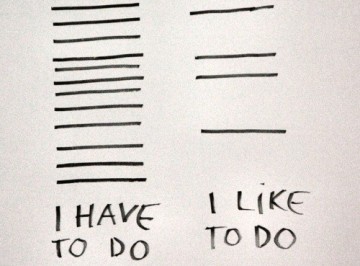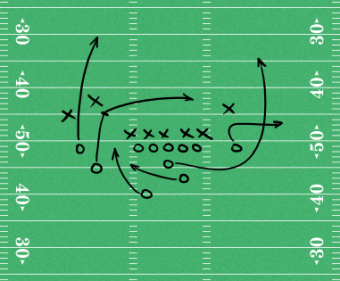Working In Jeans: Life Replaces Career
 It’s been more than three months since stepping down from ACPE. Like many of the readers of this site, I’m in a transitional period. After nearly four years of big responsibility - 24/7, 365 - the change to part-time work in health care has been wonderful! Our lives, careers, events, and people are interconnected, but sometimes we have to make an effort to see those connections in hindsight.
It’s been more than three months since stepping down from ACPE. Like many of the readers of this site, I’m in a transitional period. After nearly four years of big responsibility - 24/7, 365 - the change to part-time work in health care has been wonderful! Our lives, careers, events, and people are interconnected, but sometimes we have to make an effort to see those connections in hindsight.
I’m taking an Improv class now that I have more time. After hearing that two of my role models for presentation skills attributed their success to Improv classes, I decided to try it. Just as my friends told me the secret of Improv, I’ll share it with you. Two or three words: “Yes.....And”, or “Always say Yes”.
The point of Improv is to always keep the conversation going, and to link improbable thoughts. All too often in business and health care, that doesn’t happen. People frequently try to stop conversations and ideas from moving forward. “That won’t work”. “We tried that before.” “There’s no money in the budget for that.” Or my favorite: dead silence. If we can laugh as hard in business as we do in our novice attempts at Improv when an idea moves through its zig zag path from the absurd to the sublime, we will be better off. We’ll also provoke new ways of thinking or seeing something differently.
Like most of you, my life since finishing medical school has been pretty much pedal to the metal in private practice, management roles, and family responsibilities. Mix in regular periodic sleep deprivation to the physician’s life of self and family sacrifice for patients and the expectations of our profession, and it becomes very difficult to step back and assess who we are, and how we want to live our lives. It seemed like I always knew what my life was about, but seldom had the proper time and circumstances to reflect on the more existential questions.
I decided to continue doing health care related work no more than half-time after leaving ACPE. One part practical, another part passion for improving health care, the experiences from working at the bedside to the boardroom provide insight that I like to share with health system leaders - both clinical and non-clinical. Now, as a free agent, I can be more provocative and take more risks in advocating for better leadership for health care. For example, at the American College of Cardiology’s January leadership meeting in Las Vegas, the title of my topic was, “Venus and Mars: Why Can’t Hospital Administrators and Physicians Get Along?” They chose the title, but I was excited about laying out the multiple reasons for conflict - and providing some ways to move beyond conflict to cooperation. Judging by audience feedback, and the feeling of “flow” as I spoke, I hope to have more opportunities like that.
Just before arriving in Las Vegas for the ACC meeting, I returned from my second visit to Saudi Arabia as an ACPE faculty member for a physician leadership development program at a major health system there. The system’s determination to learn “American” principles of leadership, teamwork, and management was absolutely refreshing and motivating for me, and for Marty Martin, my fellow faculty member, and now frequent travel companion to the Middle East.
In addition to being a witness to the profound changes happening in the world through international programs like this, I found myself enjoying even the unanticipated events associated with travel abroad: Missing a connecting flight in Amsterdam, and spending a night in that city; meeting Marty the next morning in the airline lounge for one of our usual discussions about insights into American health
care (it feels like there’s ample time to listen when we’re far from home); and tagging along with Harry, the Dutch engineer with the gigantic handle bar mustache who was the only person in the Saudi customs lines that got smiles from the Saudi officials. He sat next to Marty on the flight, and I’m sure our experience in customs would have been less cheery had Harry not given the impression that we were friends of his.
My attraction to international work continues. I’ve also gotten involved in an interesting project based in China, with an American political connection. Too early to tell if it will come to completion, I know it might never have come my way if I hadn’t traveled to China and Tibet in 2005. On that trip I remember being drawn to the Tibetan symbol for interconnectedness, which was in all of the monasteries, including the Potala Palace, built in the 7th century, and home to several Dalai Lamas. That symbol is prominently in my thoughts as I contemplate spending more time in the Himalaya doing something useful.
Now the morning chill is gone, the snow is melting, and it’s time to resume my stonemasonry project that’s been on hold for too long. Though my thoughts and activities are on a zig zag pattern, the stones are coming together in a beautiful, interconnected pattern that pleases my eye.





 Post a Comment
Post a Comment




